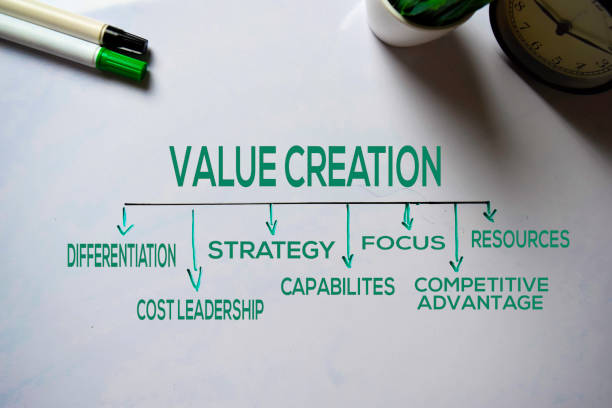Value creation for forward-thinking organisations is a primary purpose of being in business. In the past, value creation was a function of output in industry including a large production of goods, amount of sales recorded, amount of data entry, purchasing, billing, payroll, and the completion of repetitive tasks. Companies have spent a lot of time nearly perfecting the art of executing the old model of value creation. From an employee’s perspective, this technique ensures that they know what they are expected to do per day and complete these tasks. From an organisation’s perspective, it guarantees predictability and efficiency. The problem with this model is that work becomes monotonous and real value cannot be measured. If your organization draws value from optimizing repetitive work, you’ll discover that it will be increasingly difficult to extract that value over time. Value creation in the 21st century is redefining productivity. In addition to asking “what have you done for the company this week?”, Progressive managers ask “what ideas do you have and what have you done to test them out?” Value creation is beginning to take a conceptual shift from quantity of work to quality and sustainability. This concept is opening up a whole new perspective to measuring creativity, innovation and tasks that should be automated in the first place.

Today, the focus on value creation allows for generating new ideas, connecting people, testing these ideas and ensuring they are sustainable. The value of products and services today is based more and more on creativity — the innovative ways people are taking advantage of new materials, technologies, and processes. Spending time on merely managing data flow zaps our energy and drive for doing creative work.
Value creation is progressing towards the economies of ingenuity—the birth of great ideas and the high value of creating a concept that promotes a product or improves services in the market; the ability to pacify an extremely angry customer, or the way a new product or service is introduced, sold and delivered. It is systematically moving towards an era where the concept of affiliation is supplanting strategies of control and routine. This trend can be traced to the discovery of employees’ creativity and the value of human capital in an organisation.
How can your organisation position itself to take advantage of the changing phase of value creation?
- Harness the Power of Technology: The distinct feature of technology is that it has produced faster ways to do exactly the same thing we did some centuries ago. Technology is fast replacing human capabilities in achieving routine tasks (whether physical or intellectual). The best way to maximise the use of technology is to discover how you can best organise it to create value.
- Redefine Value: How do you define value? How can you measure it? What innovations and creativity, product or service will your organisation bring to your customers that will add value? How can these make their life better? Reviewing these posers can help you redefine value.
- Be Deliberate About Creativity: This is different from Research & Development. If you are a senior manager, let your team know you will be beginning a long process of inculcating innovation into their DNA; tell them that creativity is the new effort and innovation on a continuous basis is the process to make it real: this is what the organization is about and does, and will be the primary responsibility of everyone in it.
These three points above can help you realign your organisation’s vision of creating values in fast emerging markets. Bear in mind that these tasks take time, they are highly social, as success often depends on the people on your team.
